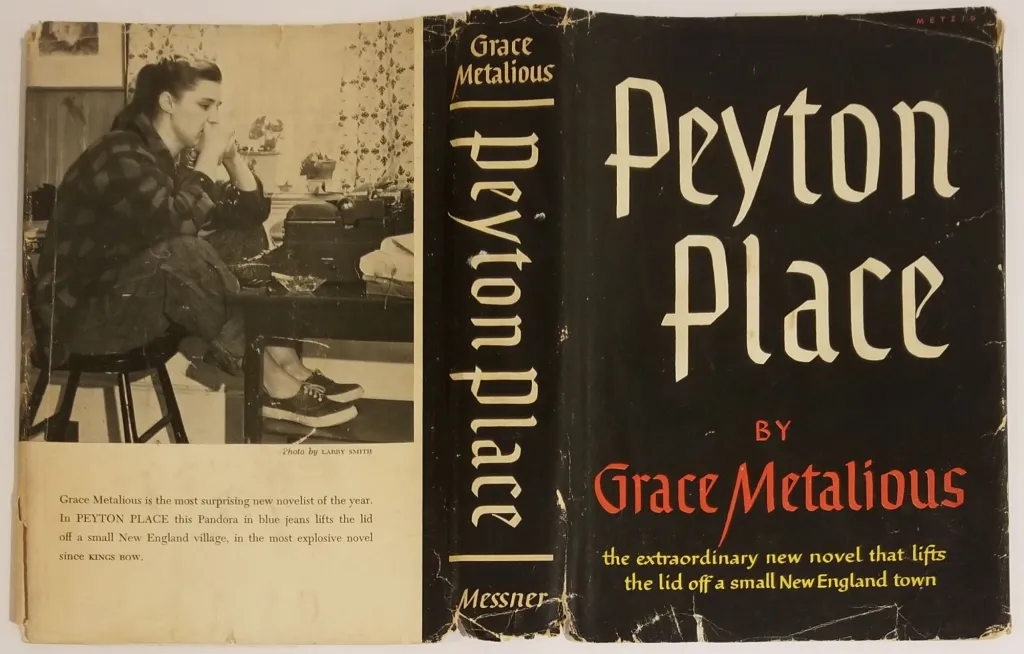“Peyton Place” is a novel that stirred significant controversy upon its release in the late 1950s. Written by Grace Metalious, the book is a scandalous portrayal of life in a small New England town, filled with secrets, betrayals, and taboo subjects. When it was first published in 1956, it became a national sensation, but it was also met with strong opposition, resulting in several bans across the United States. So, why was Peyton Place banned, and why did it cause such a stir?
A Scandalous Portrayal of Small-Town Life
“Peyton Place” revolves around the lives of the residents of a fictional small town in New England. The novel delves into deeply sensitive topics, including sexual abuse, infidelity, incest, and other social taboos. In a time when the 1950s American society upheld strict moral codes, the book’s explicit content was shocking and considered morally inappropriate.
The portrayal of a seemingly idyllic town hiding such dark secrets challenged conventional ideas of morality and respectability. For many, the book shattered the image of small-town America as a wholesome and safe place, instead depicting it as a microcosm of human flaws and transgressions. The graphic nature of some of the topics in Peyton Place led to its swift banning in various public libraries and schools, as it was seen as corrupting and inappropriate for young readers.
Themes of Sexuality and Women’s Empowerment
Another reason Peyton Place faced censorship was its focus on sexuality and women’s roles in society. The novel depicts women’s struggles with sexual repression and the limited options available to them in a patriarchal society. Many of the female characters in the story face sexual assault, unwanted pregnancies, and personal crises. The book’s unflinching look at the lives of women, particularly in relation to their sexual autonomy, was considered scandalous at the time.
This candid treatment of women’s sexuality and desires was highly controversial, especially in an era when women were expected to adhere to a conservative, domestic role. The book’s treatment of these issues was seen by some as too radical and too revealing of the darker aspects of human nature.
The Reaction from Authorities and Institutions
When Peyton Place was first published, it quickly became a bestseller, but it also attracted the ire of religious and civic groups. Many saw the book as a threat to the moral fabric of society and pushed for its removal from libraries and schools. The novel was banned in several places due to its explicit content and controversial themes. Libraries, particularly those in small, more conservative towns, removed copies from their shelves, and some bookstores refused to carry it altogether.
The backlash was also fueled by the novel’s exploration of incest and abortion, subjects that were taboo in mid-20th-century America. Even though Peyton Place was not the first work to deal with these issues, it brought them into the mainstream in a way that shocked many readers. The book’s candid portrayal of these difficult subjects was seen as subversive by many and prompted an intense wave of censorship efforts.
The Cultural Impact of Peyton Place
Despite the bans and controversies, Peyton Place had a lasting impact on American culture. The book’s success paved the way for a new wave of literature that addressed topics like sexuality, abuse, and social injustices. In some ways, it helped open the door for later works of literature and film that tackled similar taboo subjects.
Moreover, the novel’s success spawned a film adaptation in 1957, which, while also controversial, was a major box office hit. The story’s exploration of complex emotional and social issues resonated with a broad audience, leading to both acclaim and criticism.

More Stories